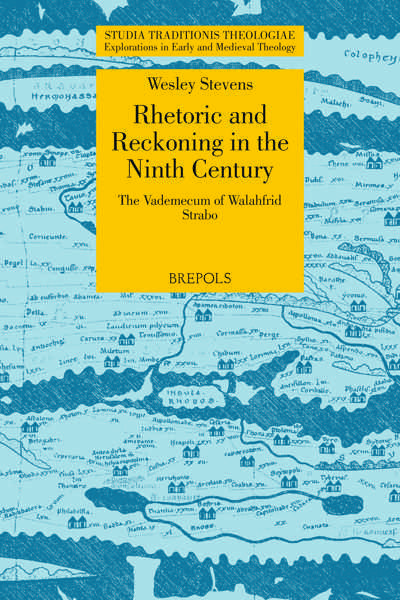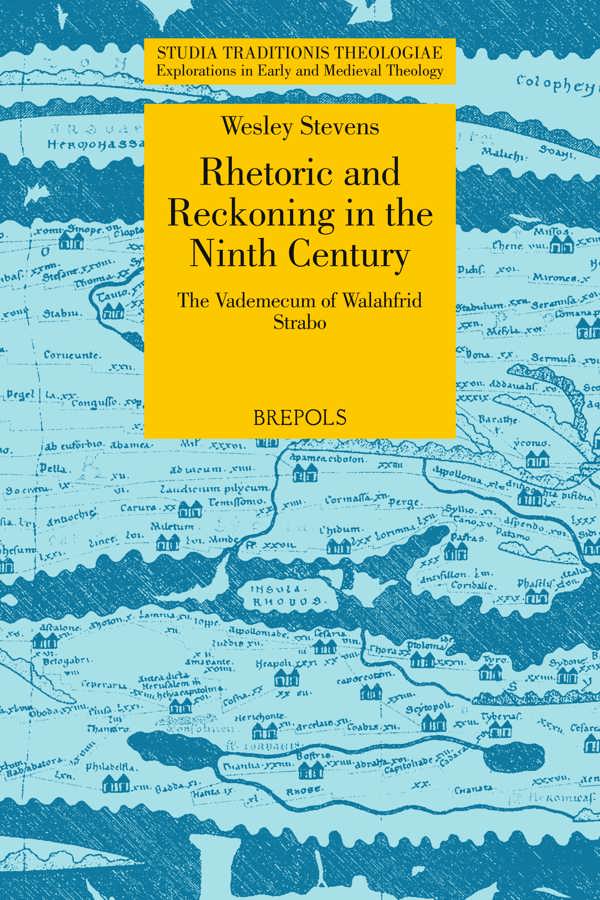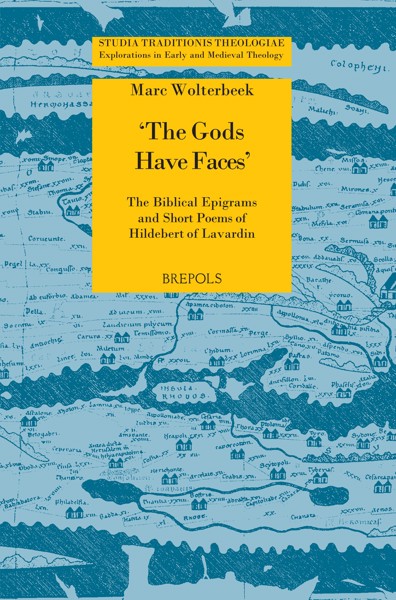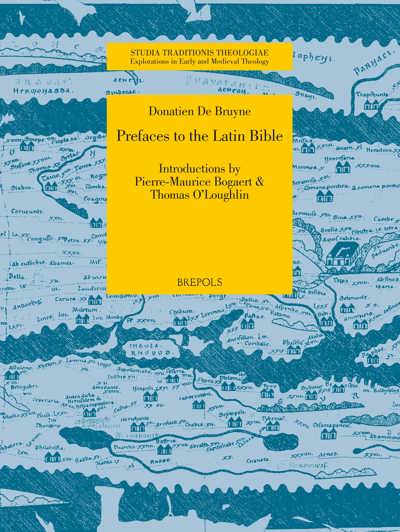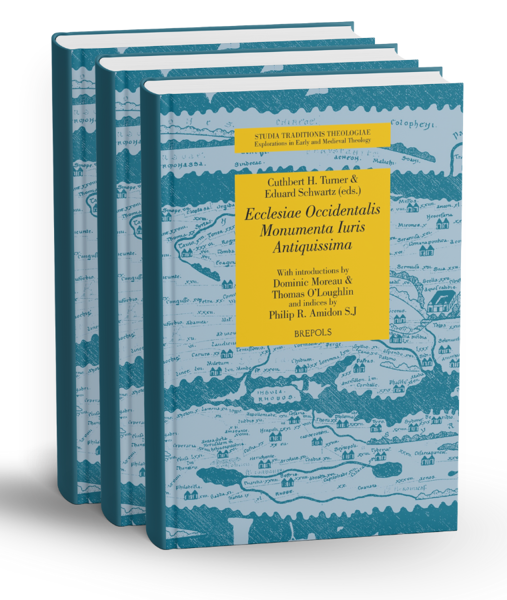
Walahfrid Strabo
Rhetoric and Reckoning in the Ninth Century
The 'Vademecum' of Walahfrid Strabo
Wesley M. Stevens
- Pages: xxxviii + 408 p.
- Size:156 x 234 mm
- Illustrations:19 b/w
- Language(s):English, Latin
- Publication Year:2018
- € 85,00 EXCL. VAT RETAIL PRICE
- ISBN: 978-2-503-56553-8
- Paperback
- Available
- € 85,00 EXCL. VAT RETAIL PRICE
- ISBN: 978-2-503-57317-5
- E-book
- Available
Walahfrid: Poet, Liturgist, Computist, and a bit cockeyed.
« Dopo questo libro, che ha richiesto certamente anni di ricerche accurate ad alta specializzazione - libro del quale non possiamo che ringraziare l'autore Wesley M. Stevens, l'editore Brepols e il direttore della collana Studia traditionis theologiae Thomas O'Loughlin che l'hano accolto - la biografia, la formazione e gli interessi culturali di Valafrido e soprattutto il ruolo della scienza nell'età carolingia si rivelano a noi in forma rivoluzionata e suscitano rinnovato interesse. » (Francesco Stella, in Mittellateinisches Jahrbuch 54/3, 2019, p. 535-543)
"The book is a must-read for every historian who is interested not only in Walahfrid's vivid world of episteme, but also in the history of medieval science and the history of Carolingian intellectual elite culture, which is closely interconnected with the complicated and fragile political discourse of this epoch." (Richard Corradini, in Peritia 30, 2019, in press)
“ Die vorliegende Studie bereichert unser Bild von Walahfrid, indem sie ihn – der auch heute noch meist nur als Dichter rezipiert wird – als Gelehrten, Forscher und Lehrer anhand seines persönlichen Instruments, seiner Handschrift, aufzeigt. Insbesondere für weitere Forschungen zum Vademecum selbst sowie zu dessen astronomischen und kalendarischen Inhalten wird Stevens’ Arbeit einen nützlichen Ausgangspunkt bieten.“ (Das Mittelalter, 25/1, 2020)
Wesley M. Stevens has published four monographs, over 100 articles, and ten volumes of essays in medieval education; they include the science of the venerable Bede (701-735), especially the originality of his tidal theory which continues to be applied by harbour pilots around the world, today. He edited the Computus of Hrabanus Maurus of Fulda (819-820) and translated 'Viderunt omnes', the oldest polyphonic song, from Latin and Langue d'Oc into English and French, performed by Camerata Nova (CD 2003). Having lectured in 18 countries, he clarifies the mathematics, astronomy, and cosmology taught in early monastic schools, including geometry (Euclid books I-V) and excentric orbits of planets.
A modest man of great accomplishments, Walahfrid Strabo was a fine poet, teacher, abbot, gardener, liturgist, and diplomat. His personal notebook reveals that he loved arithmetic and astronomy. For a decade, he tutored Carolus iunior, youngest son of Judith and Ludwig der Fromme, who became emperor Charles the Bald. On two occasions, Walahfrid found and transcribed formulae and explanations of time series, often correcting them.
By identifying Walahfrid's sources and scripts, Professor Stevens is able to trace his life and scholarship, as they relate to Carolingian politics and schools in the first half of ninth-century Europe.
Preface
References – Bibliography: Abbreviations, Ancient Authors and Sources, Modern Authors
Chapter I. Renovatio in Literature and the Sciences: Renewal of educat:on in schools of cloister and cathedral
Chapter II. The Vademecum: Early life of Walahfrid on the Reichenau, his teachers, poetic talent, friendship with Grimalt; outline of his personal notebook
Chapter III. The Scripts: Palaeographical analysis of ms St. Gallen 878 and its contents added during seven periods of his life
Chapter IV. Fruit of the Vine: Successful struggles to learn Latin grammar and arithmetic; saints᾿ lives; detailed corrections of texts revealing his pursuit of knowledge in several fields
Chapter V. St. Michael’s Abbey, Fulda: His friendship with Godescalc; collation of his own with a Fulda manuscript of Hraban’s Computus; creation of the unique Fulda Calendar of Nones, Ides, Kalends, and his verses
Chapter VI. Fulda to Weißenburg: Travel to Weißenburg; Walahfrid and the ars poetica of Horace; argumenta of computus and astronomy.
Chapter VII. Aula Regis: Ingelheim and Judith in a decade of turmoil; Walahfrid’s duties as tutor of Carolus iunior
Chapter VIII. Compilationes: he creation of two large collections of computes and astronomy; Compilatio DCCC XII (821 – 820) as Walahfrid’s source
Chapter IX. Aachen and Prüm with young Karl: Walahfrid in Aachen; separation from Ludwig and Judith; appointment as abbot and fidelis with an Honour; the stella nova
Chapter X. Walahfrid’s Chronology: Prüm 833 – 834 with Karl and the Annales Prumienses; Bissextus, Saltus, and sidereal time
Chapter XI. Aera Incarnationis: Annus Mundi and its uses; Bedan aera Incarnationis; Walahfrid’s teaching and his love of reckoning.
Chapter XII. Evaluations: A poet and Latinist of note; liturgist; simul rhetor vel computista
Appendix A. The Fulda Calendar: Facsimiles, transcription, identification of names
Appendix B. Versus Computistici: Transcriptions, English translations
Appendix C. Compilatio Items 1 – 5: Critical editions from six manuscripts
Appendix D. Compilatio Items 6 – 30: Critical editions from six manuscripts
Appendix E. Manuscript Descriptions: New, detailed descriptions of six manuscripts
Appendix F. Concordantia: Citations of argumenta in manuscript, cross references
Appendix G. Sources of Computus: Identification of computi available in lifetime of Walahfrid
Index (manuscripts, names, places, initia)
